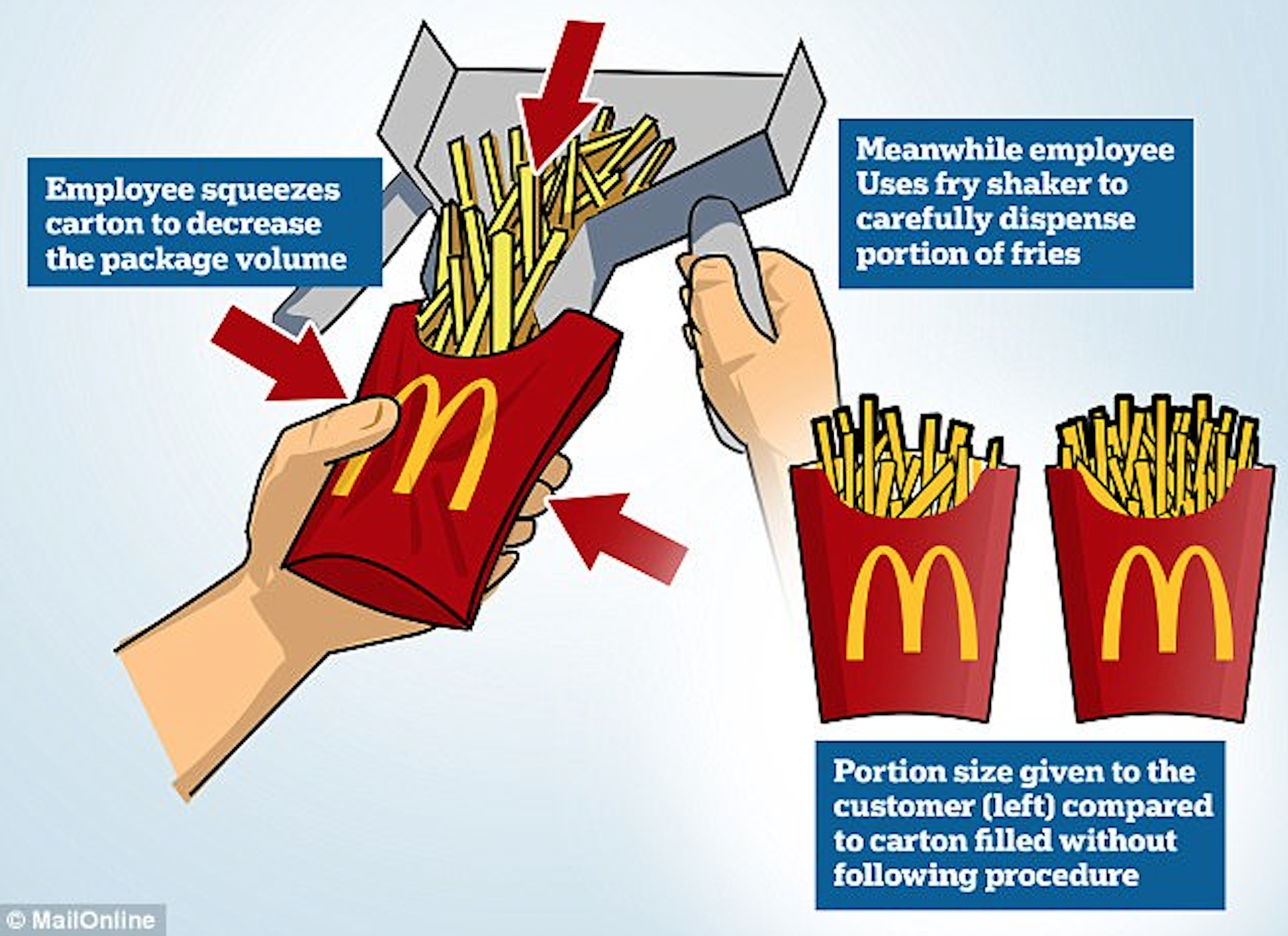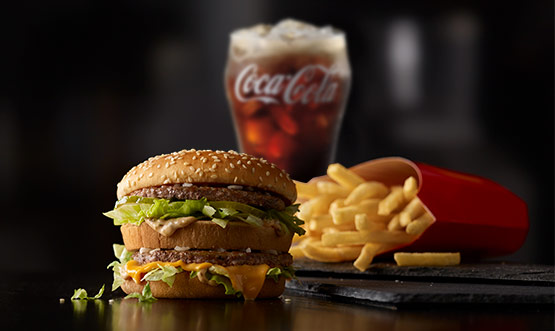Recently on the social media platform ‘Reddit’, numerous employees from different franchises of the fast-food giant ‘McDonald’s’ have revealed the inner-secret of their efficient packaging in the post “What did your job want you to hide from customers?” They write explaining that they are trained, or in their words ‘encouraged’, to under-fill their famous fry cartons by first pinching the sides of the paper packaging, then gently sliding the fries into place to create an illusion of having a seemingly full container upon purchase as the fries are propped up and elevated on the indented carton.

[According to employees pinching the carton while filling it decreases the volume of the package and means less fries can fit inside]. (2017, September 12). Retrieved September 13, 2017, from http://www.dailymail.co.uk/femail/food/article-4875790/McDonald-s-employees-claim-cartons-fries.html
But in contrast to the argument regarding customer dissatisfaction, due to the product nature of french-fries typically being an add-on to a full meal combo, the factor of satisfaction may already have been fulfilled as the customer’s incentive for happiness was already met via the meals main dish, which in McDonald’s case is the burger. This means that although there may be a reduction in the quantity of french-fries, the importance of this reduction is minimal as it is seen as an additional benefit in the scope of the customer’s main objective.

[Get a tasty meal at a great price with each EXTRA VALUE MEAL]. (n.d.). Retrieved September 13, 2017, from https://www.mcdonalds.com/us/en-us/full-menu/extra-value-meal.html
So while unethical business practices usually root from companies trying to over-exploit an area within the business, the repercussions of these dishonest behaviours may cause unfavourable and regrettable circumstances that may ultimately cancel out or even overrun any benefits gained from the result of the original unethical business practice.
Word Count: 447.